Dec 24, 2024
Nov 04,2024
Come Softly to My Wake, Christy Brown's 1970 poetry book, sat on my father's bookshelf for as long as I can remember. One day in my twenties (a fortuitous one), I picked it up and opened it. I read it. It was as raw and as moving as I felt it ought to be—for a man who’d lived a life mechanically communicating through a foot. But it was deeper than expected. It spoke of a life far fuller than my limited preconceptions had allowed a thus-afflicted person to be.
We need your consent to load this rte-player contentWe use rte-player to manage extra content that can set cookies on your device and collect data about your activity. Please review their details and accept them to load the content.Manage Preferences
This unsettled me for reasons I still grapple with. Maybe the length and breadth of his emotional world and its hardships… and how it seemed so universally inevitable, no matter your place in life. But nonetheless, from therein, Christy was a poet in my mind, and I felt enriched for knowing that.
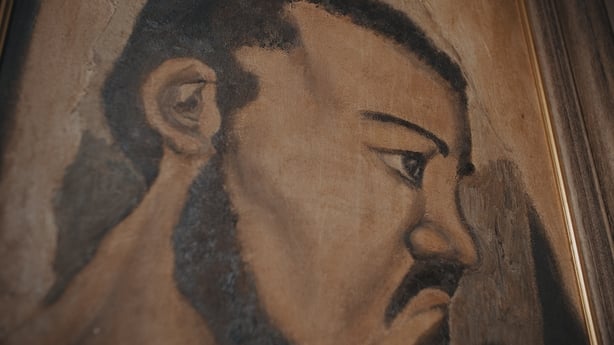
I think I always assumed that Christy would eventually be a subject of a documentary—a powerful one—but for whatever reason, it never materialised. So I knew I would do it. I also knew implicitly that it would be based around dramatic readings of his distinct, guttural poetry. This vision was quite clear in my head; interspersed aspects of his life amongst these powerful readings—a deeply celebratory piece about one of Ireland’s most revered poets.
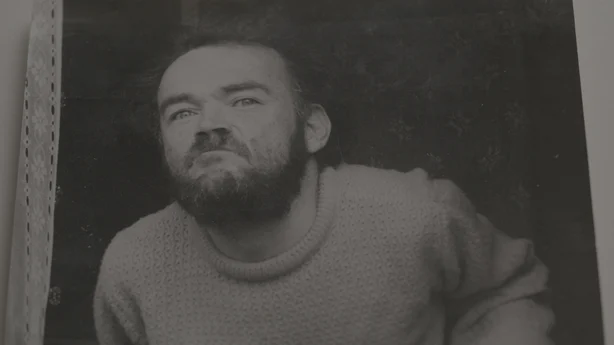
The problem, however, is that upon entering the initial research phase that a historic or biographical project demands—I learned pretty quickly that not only was Christy 'not’ seen as a highly regarded poet within the clique of literary critique—the awful, mostly vapid word celebratory wouldn’t apply much either. (Celebratory content is such a cop-out anyway). Additionally, he wasn’t really remembered much beyond the story of My Left Foot either. As a film, it is, of course, brilliant, and such was the vividness of Day-Lewis’ performance, it had the rather ironic effect of deepening the shadow cast on Brown’s legacy—that has only further wilted in the 35 years since Jim Sheridan’s Oscar-winning picture was distributed globally by Miramax.
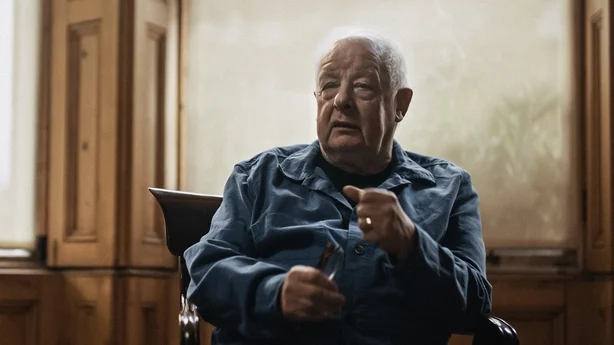
So, these realisations, alongside Christy’s very sad end of life, enforced a ground zero for the documentary. Understanding that Christy’s legacy wasn’t set in stone—and as an artist, he was (is) more obscure than one might expect. Known probably better for his paintings than his poems, there was work to do to justifiably reimagine the man as a serious writer of verse.
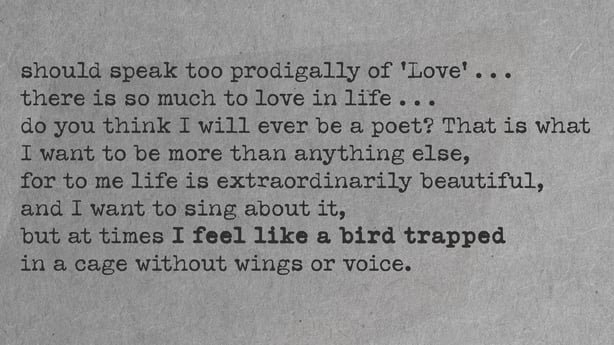
Christy isn’t a Yeats. He’s not a Kavanagh. And if you don’t know what those names ought to mean—don’t feel bad. It’s pretentious to assume someone should. What it’s trying to say in literary shorthand, is that he’s not a great poet either. Or is he? What is good poetry anyway? That’s a rhetorical question; the answer is far more dreary than you might tolerate.
What even is this blog about? I think what I’m meandering towards is why I called the film Christy Brown: Self Portrait. Especially since nobody likes his self-portraits very much, and they certainly don’t command a flattering price tag at auction.
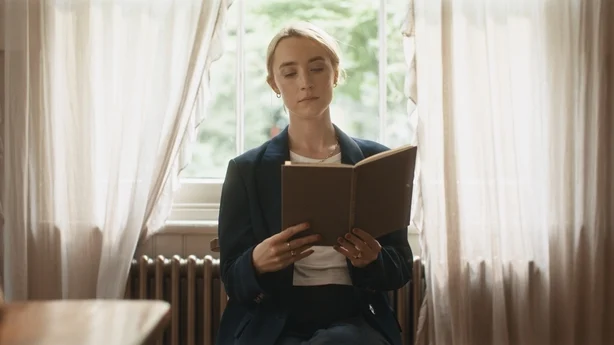
What I personally came to discover is that where great paintings and a good self-portrait should, at the very minimum, put one in contact with ‘truth.’ What truth? Yours to decide. But it ought to rattle something inside you. Your bones. Your soul. Your identity. Or your worldview. And while Christy’s paintings are unlikely to do that, his poems, and at times his novels, will do that. As a sort of aggregation that forms a deeply penetrating and jolting self-portrait with nothing spared. No leaf on the loins—just naked, unflattering, and unyielding self.
Should you watch it? I think you should. Christy warrants it. Where Saoirse Ronan’s poem readings and Aidan Gillen’s narration will, I think, make it well worth it.